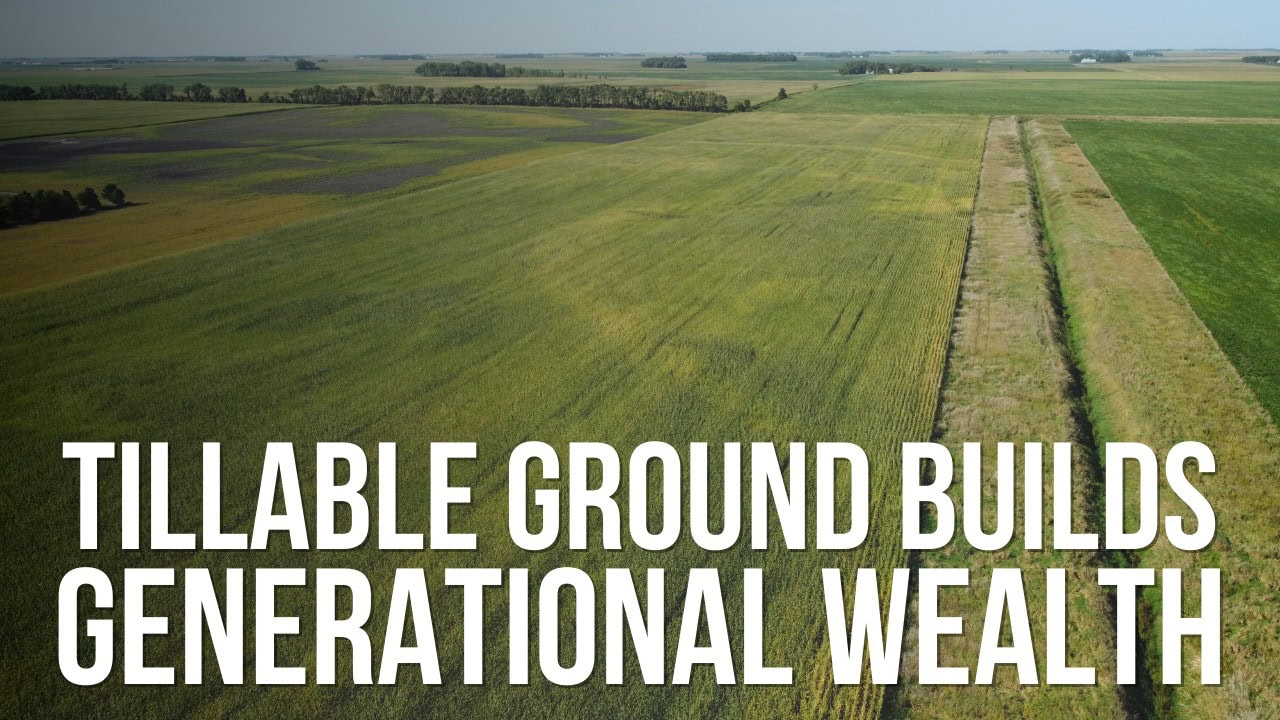Why Invest in Tillable Land?

Nick Hopp
Iowa Land Specialist
Investing in tillable land has long been recognized as a stable and lucrative investment strategy. For those seeking a solid rate of return, long-term appreciation, and the ability to defer taxable gains, tillable land offers a unique opportunity. Tillable land provides a steady rate of return, as landowners can generate reliable and consistent income through leasing the tillable land.
Unlike many other investments that are subject to market volatility, tillable land has a long term track record of steady appreciation and relative stability. As a result, investing in tillable land is an excellent choice for long-term wealth accumulation, providing an opportunity for investors to see the value of their land rise steadily over the years.
Tax Benefits
A significant advantage of investing in farmland is the tax benefits it offers, particularly the ability to defer taxable gains. Through strategies like the 1031 like-kind exchange, investors can defer capital gains taxes when selling property and reinvesting the proceeds into another piece of land. This tax deferral allows investors to reinvest more of their profits, thus increasing their overall returns. In addition, landowners may qualify for various tax deductions related to land improvements or conservation efforts, further enhancing the financial benefits of farmland ownership.
Diversify
Farmland also provides an excellent way to diversify an investment portfolio. By including tillable land in a portfolio, investors reduce their exposure to more volatile assets. Farmland typically operates independently of other market conditions, meaning it is less susceptible to market fluctuations and economic downturns. This makes it a reliable hedge against financial uncertainty, offering a stable and tangible asset that is less vulnerable to the ups and downs of other markets.
Factors to Consider
It is crucial for investors to consider several factors when investing in tillable land. Location plays a significant role in the land’s potential. Progressive farming communities, good soil quality, proximity to transportation routes and grain markets can impact the potential for generating income and increasing land value. It is also important to stay informed about market trends, such as changes in crop prices and farming technology, to ensure that investment decisions align with industry shifts.
Proper land management is key to maximizing returns on farmland investments. Whether leasing the land to a farmer or managing it directly, maintaining the productivity and health of the land is critical for ensuring long-term profitability and increasing land value. Hiring an experienced land manager can help optimize the land’s potential.
In conclusion, investing in tillable land remains an attractive and desirable option for those looking for steady returns, long-term asset growth, and tax advantages. By considering factors like location, market trends, and proper land management, investors can benefit from the many financial and personal advantages that investing in tillable land offers. Farmland investment is an excellent way to diversify portfolios, hedge against economic uncertainty, and contribute to sustainable farming practices, making it a sound and rewarding investment choice.
Do you want to learn more?
Are you considering investing in tillable land? Reach out to a local High Point Land Company agent. For more questions regarding land real estate, visit our YouTube Knowledge Center!
With seven years of full-time experience as a land specialist in Iowa and South Dakota, Nick Hopp has distinguished himself as a leading expert in the field. Nick has successfully facilitated the sale of thousands of acres, setting numerous township and county records through his adept use of proven auction and real estate strategies. If you are interested in selling your farmland, call Nick at 319-240-6121 or email him at nick@highpointlandcompany.com.
